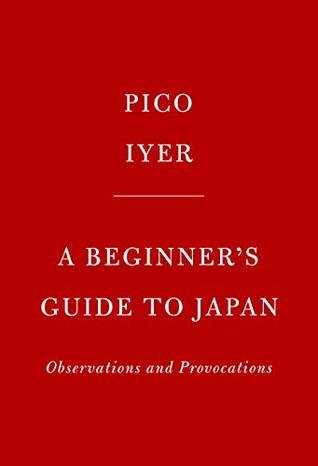More on this book
Community
Kindle Notes & Highlights
If you want condition of warm in your room,” says the instruction manual for a Japanese air conditioner, “please control yourself.”
The pressures of responsibility are what make the Japanese the strictest people I know, even as the constant attention the pressures encourage makes them the kindest.
When conflict arises in Japan, it’s often because one person wishes to give up her needs as much as another wishes to give up hers. Such duels of self-sacrifice leave everyone stranded in an agony of thwarted self-denial.
To be part of a circle frees you from the pressure of having to make a decision. But it imposes on you the pressure of knowing that every move you make will affect everybody else.
In England, I was taught never to take anything seriously, least of all myself. When I moved to America, I was encouraged to take everything seriously, especially myself. In Japan, the people I know don’t seem to take themselves very seriously—but only because they take their roles, the parts they have to play in the national pageant, very seriously indeed.
The Japanese after the war “gained a strange peace of mind,” Isamu Noguchi observed in 1950. “They are as it were free, free from the responsibility of being powerful.”
It’s not morality that’s important, but the unwritten rules.
in Japan, the family feels obliged to take financial responsibility for the inconvenience caused by a suicide, or even an accident.
I’m stunned, in a Californian ICU, that the nurses tending to my stroke-ridden mother change every day. “I suppose they don’t want the staff getting too emotionally engaged with patients who could die at any moment,” I tell Hiroko. “No,” she says. “Responsibility. If something happens, they don’t want any one individual to feel it’s her fault.”
In Junichiro Tanizaki’s novel The Makioka Sisters, set a decade earlier, the action for more than five hundred pages turns on nothing but a young woman’s refusing to say yes to any proposal, and not really saying no.
That indecisiveness is fatal, because both husband and wife are unhappy in their marriage and both have taken on lovers. But neither will take responsibility for being the one to break their union, so they remain in sorrowful limbo forever.
As the husband says, inverting the sentiment I expect to hear elsewhere, “Each of us thinks the other is perfectly right, and that makes everything impossible.”
“If you’re always thinking of the other person first,”
“you don’t have to bother with what you’re feeling. Or thinking.”
When Japan was ushered into an arranged marriage with America after the war, it had to address, with fresh urgency, how much to follow the forward-looking way of its new partner, how much not to sweep under the carpet.
The theme of Ishiguro, born in Nagasaki in 1954, is always what to do with the past—how at once to respect it and to set it aside. His characteristic time is twilight, when what has recently been visible becomes as bleary as what is about to come. His first non-Japanese novel, bearing the very Japanese title of The Remains of the Day, centers on one postwar figure who, realizing, too late, that he failed to take responsibility in the public sphere and failed to take initiative in the private, is left in a shadowland of “If only”s.
Japan likes to present itself to the world in its collective, corporate face—in groups—and we like to see it in terms of stereotypes. Yet everything fresh, surprising and warm in Japan takes place at the level of the individual: Japan’s great accomplishments may be communal, but its treasures are its constantly unexpected and passionate people.
Nowhere else I’ve been, in fact, are individuals so disengaged from the political domain; my Japanese friends assume they can no more address their leaders than they can a group of look-alike men in suits in a corporate boardroom with the doors locked and the curtains drawn. So they turn their backs on the public sphere, and make fantastic worlds out of their passions, counter-societies
out of their hobbies.
Pragmatic to the core, my Japanese pals are happy to take four-day trips around Europe, because they know that four days of novelty can furnish forty years of memories. Experience is less important than what we make of it.
At a Starbucks in central Kyoto, seats are lined up in a row, so you can look out at a sixth-century temple in a courtyard. At the National Museum of Modern Art, not far away, chairs are likewise set out in a line in a large empty room so you can look out at the busy streets, the girls flowing past in spring kimono, the cherry trees framing a thin canal.
No one married to a Japanese would ever call her “repressed.” She simply has a sharp and unwavering sense of where emotion is appropriate and where not;


